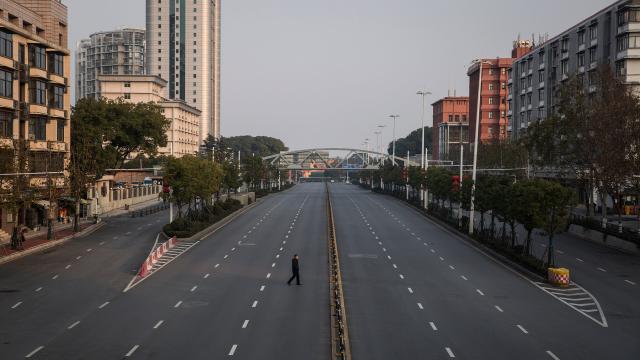Global oil demand is experiencing its most sudden and dramatic dip in history, and it’s all because of the coronavirus outbreak.
IHS Markit, a London-based financial data group that hosts a major energy conference every year (which it cancelled due to the outbreak), published a research alert on Thursday on how the first quarter of 2020 is treating oil. And it shows a serious shift in the global market. COVID-19, the formal name for the virus, has brought the Chinese economy to a halt. As the world’s largest importer of oil and gas, that’s sent the fossil fuel sector into a tailspin that could worsen as other nations also struggle to contain the outbreak.
China has implemented widespread quarantines that have slowed down the movement of both people and goods. That’s because without road travel, there’s no need for to gas up cars. With airlines cancelling flights left and right, there’s less need for jet fuel. The IHS Markit analysis shows that commercial passenger trips by road, rail, air, and water were down 80 per cent in February compared to a year ago in China.
World oil demand for the first quarter of 2020 will be 3.8 million barrels of oil a day lower than a year earlier, a demand reduction that’s the single biggest quarterly drop on record. And that’s not just due to China’s economy on pause. The coronavirus is impacting parts of Europe, Japan, South Korea, the Middle East, and North America.
“This is even bigger than what we saw at the peak of the 2008 crisis,” Jim Burkhard, the head of oil market research at IHS Markit, told Earther. “What’s also different is how instantaneous this was because China basically switched off large sectors of its economy almost overnight. That’s why we’re calling it an instant demand shock.”
China has also seen its air pollution emissions significantly decrease due to this pause in activity. And using less oil is good for the climate, but this is absolutely not how the world needs to go about reducing carbon and air pollution. The coronavirus has killed an estimated 3,000 people globally with some 90,000 confirmed cases. The situation is reaching a new level of urgency in the U.S. as more cases are discovered, which is likely to further impact domestic and international travel.
The drop in oil demand is a symptom of the economy slowing down (not the other way around), said Burkhard. IHS Markit does not foresee the oil market bouncing back from this for the 2020 financial year. It expects demand to be less than it was in 2019 even if there’s a recovery in the latter half of the year.
“What we’re seeing is oil demand is following the repercussions of the coronavirus in the economy,” he told Earther. “Oil is a reflection of the world.”
In an ideal world, oil wouldn’t reflect the state of the economy. The world should wean itself off fossil fuels as part of a smooth, just transition. Otherwise, the economy—which is so entwined with the oil and gas sector—will suffer. And what we’re seeing now with the coronavirus is exactly what we should be trying to avoid when the end of oil does come.
